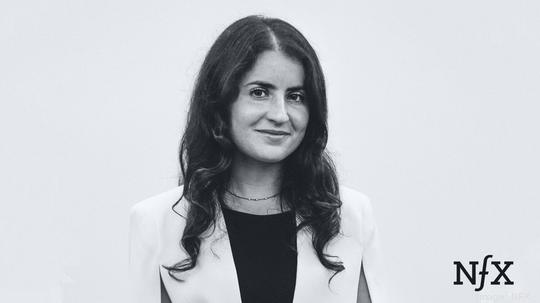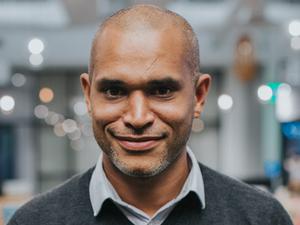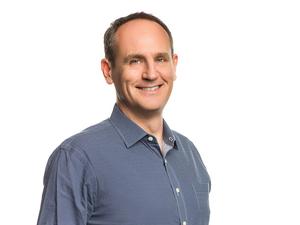
What does blockchain, biotech, gaming and space have in common? Potential network efforts — an exponential chain reaction triggered by more users jumping in and by their scale improving the utility of a service. It's the driving force (and namesake) behind venture capital firm NFX. Founded in 2015, the company has offices in San Francisco and Israel, and a staff that includes entrepreneurs behind world changing technologies.
On Tuesday, the firm announced its largest fund ever: $450 million that will be dedicated to pre-seed and seed investments in startups across a variety of sectors. The Business Times spoke with two of the firm's general partners, James Currier and Morgan Beller, about their vision for the fund, emerging trends in Silicon Valley and what investors can learn from the collapse of Theranos.
Business Times: The name of your firm is NFX — literally "network effects" — what does that mean and why is it an existential part of your investing mission?
Morgan Beller: Network effects are nice to have, it's not a need, but if you really want to win you need to have those mechanisms, strategies and product features baked in from the earliest stages. So, we really believe that the value that we add, and that founders seem to resonate with, is we make sure all those are baked in at the early stage. Network effects are in every facet of life. What's really extra important, I spend all my time on crypto — Web 3.0 — and network effects are not nice, they're a need to have.
James Currier: A network effect means that any user of your product adds value to all the other users there were already here. That's the fundamental idea behind network effects. And one of the first companies to ever have that was AT&T and then Microsoft and then Visa. Now I think eight or nine of the top 13 market cap companies in the world have network effects at their core. And they were all started in the last 20 to 25 years. Every time there's a new seller on Amazon Marketplace it benefits me, the buyer. And every time there's a new buyer on Amazon Marketplace, it benefits the seller.
What are some emerging trends that you're excited about?
Beller: Web 3.0… that's where I spend most of my time.
Is that the new term for crypto?
Beller: So Web 3.0 browsing is more inclusive of all things related to this nascent technology. Crypto can also mean cryptography. Within Web 3.0 we are excited about crypto gaming.
Currier: We're also very interested in Tech Bio, which is this software-driven biotech and we've made a number of investments in that space. It's done incredibly well. We think the next 15 years is going to be largely about how we take software and help adapt it to the most complicated technology on planet Earth which is DNA. We also are very interested in FinTech, new ways of paying, new ways of getting credit, new ways of transacting. And also marketplaces. So many things come down to marketplaces.
Tell me more about crypto and Web 3.0. What does that mean?
Beller: Web 3.0 to me means the internet with baked-in incentive structures for all participants. And that's really what Web 3.0 brings that Web 2.0 platforms don't, whether it's tokens or NFTs, it's just a very transparent way to understand and align all participants' motivations and economic incentives. For example, there's nothing wrong with using ads to fund various media properties but the end user doesn't necessarily have an understanding of where that's going. Web 3.0 could do that in a more transparent way. Maybe the user gets a kickback. It's Web 2.0 but more transparency and more baked-in incentives.
What is Tech Bio and how is that different from biotech?
Currier: Meaning it's software first. Some people call it computational biology. That whole area is exploding. We have a lot more computation, it's cheaper, we have AI and we have automated ways of doing experiments. That lets you do many more experiments much quicker and costs are coming down faster than Moore's law. San Francisco and Boston are locked in a battle between the companies that are building this stuff.
Thinking about biotech and Tech Bio… the big story right now is Theranos and Elizabeth Holmes being on trial for fraud. Are there any lessons for investors to take from that whole saga?
Currier: Yeah, I mean, you have to do your due diligence. What's important to note is that there's no good venture capitalist who invested in that. All their money came from outside the Valley and they didn’t have the typical due diligence that a normal venture firm would do. I think she purposefully stayed away from people who would actually do the work. She found the suckers.
Beller: Just do your homework because sometimes things are too good to be true.
How is venture capital transforming right now, particularly in Silicon Valley?
Beller: There's just so much money, everyone has money. So money is no longer a differentiator, money is a common denominator. So it's what can you offer beyond the money. Whether that's services or community, I think that's where we're really proud of the platform that we're building at NFX.
Currier: Venture capital used to be a sleepy, white shoe endeavor and now it's more of a well-understood battleground between companies trying to service entrepreneurs. I think it's the golden age of startups. Our $450 million pre-seed fund is an example of that. That used to be a pretty sizeable Series A fund several years ago and now we are super sizing seed and that means we're gonna have a lot more companies form over the next five or six years.
What's your vision for this next fund?
Currier: The vision is to become the number one pre-seed venture fund in the world. Nothing short of that. That's why we're playing the game. We want to have the best services for the founders. We want to be able to connect them to the right people, and we want to have the capital to support them throughout their life. So this gives us that.
Beller: More of the same. We like our model. We feel the early stage is where we can add the most help and where we have the most fun.
Is there anything else you'd like to add?
Currier: We invest between $500,000 and $3 million in small companies doing technology things. It might be two people with a business plan and we want to be the first to invest in it.
The Deets

James Currier
Residence: Palo Alto
Hobbies: No hobbies, I have four kids, a wife and NFX
Reading: "Scale" by Geoffrey West and "The Square and the Tower" by Niall Ferguson
Watching: Ted Lasso
Education: Princeton and Harvard
First investment: Flickr
What are you proudest of: My family

Morgan Bell
Residence: San Francisco
Hobbies: Going for walks and playing piano
Reading: "When Breath Becomes Air" by Paul Kalanithi
Watching: LuLaRich
Education: Cornell
First investment: At NFX it was Stoke (maker of reusable rockets), and before that it was either Anchorage or Stedi
What are you proudest of: Getting my family to move from New York to San Francisco








